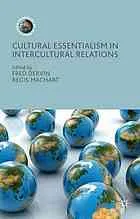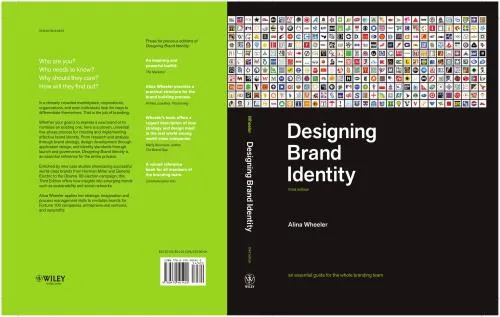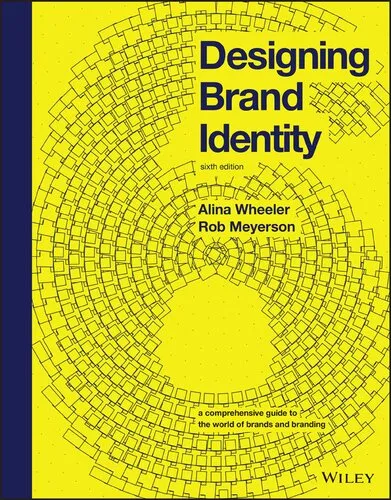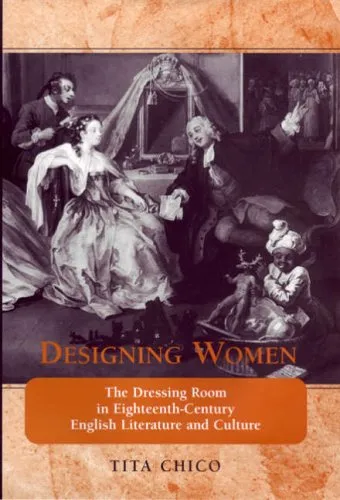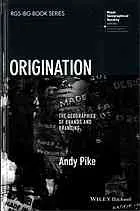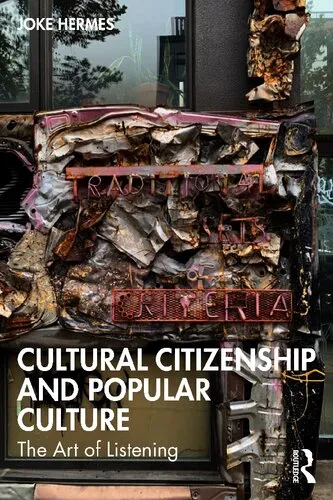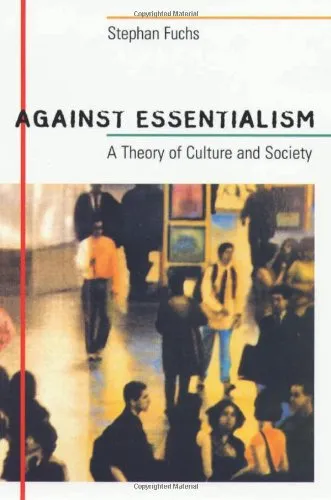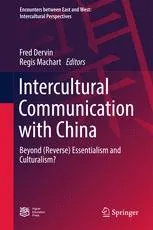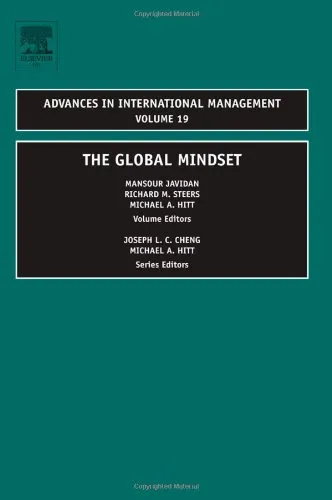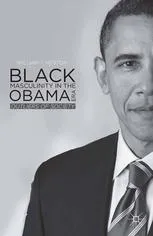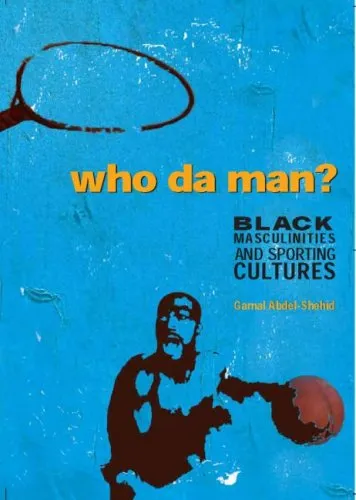Cultural essentialism in intercultural relations
4.5
بر اساس نظر کاربران

شما میتونید سوالاتتون در باره کتاب رو از هوش مصنوعیش بعد از ورود بپرسید
هر دانلود یا پرسش از هوش مصنوعی 2 امتیاز لازم دارد، برای بدست آوردن امتیاز رایگان، به صفحه ی راهنمای امتیازات سر بزنید و یک سری کار ارزشمند انجام بدینکتاب های مرتبط:
معرفی کتاب "Cultural essentialism in intercultural relations"
کتاب "Cultural Essentialism in Intercultural Relations" نوشتهٔ فرد دوروین (Fred Dervin) و رژی مارشار (Regis Machart) اثری برجسته در حوزه مطالعات بینفرهنگی و نقد اساسی نگاهی ذاتگرایانه به فرهنگ است. نویسندگان در این کتاب تلاش میکنند تا مفاهیم توهمبرانگیز در ارتباطات میانفرهنگی را بازتعریف کرده و با رویکردی انتقادی از باورهای رایج درباره فرهنگ و هویت پردهبرداری کنند. این اثر به خوانندگان کمک میکند نگاه عمیقتری به تعاملات فرهنگی داشته باشند و ایدههای سنتی و ایستا درباره "خود" و "دیگری" را به چالش بکشند.
خلاصهای جامع از کتاب
کتاب به بررسی مفهوم Essentialism فرهنگی میپردازد که اغلب به معنای انتساب ویژگیهای ثابت، مشخص و غیرقابلتغییر به گروههای فرهنگی مختلف است. نویسندگان در طول کتاب توضیح میدهند که این نگاه میتواند باعث محدودکردن فهم ما از پیچیدگیهای واقعی انسانها و گروههای مختلف شود. آنها با استفاده از رویکردهایی از Critical Intercultural Studies و Micro-analysis نشان میدهند که چگونه تعاملات، پویا، بافتمحور و متاثر از متغیرهای مختلف هستند.
موضوعات کلیدی کتاب شامل موارد زیر هستند:
- نقد ذاتگرایی فرهنگی: چگونه نگاههای غلط میتوانند منجر به تقویت کلیشهها شوند.
- بازسازی مفهوم هویت: چرا هویت فرهنگی مفهومی پویا و در حال تغییر است.
- رویکردهای پیشنهادی در مطالعه تعاملات بینفرهنگی با هدف افزایش فهم و همکاری.
نکات کلیدی کتاب
- نقد اصول کلیشهای درباره فرهنگ و هویت.
- تاکید بر نقش بافت در تحلیل ارتباطات بینفرهنگی.
- تشویق خوانندگان به دوری از دیدگاههای تقلیلگرایانه.
- ارائه رویکردهای عملی برای بهبود روابط بینفرهنگی.
جملات معروف از کتاب
"Culture is not a monolithic entity but rather a complex and dynamic fabric of interactions."
"Interculturality exists not in the idealized understanding of the 'Other,’ but in the interactions we experience every day."
"Stereotypes are the shackles that hinder us from truly engaging with others."
چرا این کتاب مهم است؟
کتاب "Cultural Essentialism in Intercultural Relations" از این جهت مهم است که زاویه دید خواننده را نسبت به مفاهیم بنیادی، مانند فرهنگ، هویت و ارتباطات میانفرهنگی گسترش میدهد. در دنیایی که تفکر کلیشهای درباره فرهنگها باعث ایجاد سوءتفاهم و حتی تنش میشود، این اثر ابزاری ارزشمند برای آموزش، پژوهش و توسعه گفتوگو است. همچنین این کتاب خوانندگان را بهصورت عملی تشویق میکند که فرهنگها را درک کرده و تعامل مؤثرتری با آنها داشته باشند.
ایدههای مطرح شده در این کتاب نهتنها در محافل علمی بلکه در حوزههای مدیریتی، آموزش، و سیاستگذاری نیز کاربرد دارند و بر اهمیت پذیرش پیچیدگیها و تفاوتها تمرکز دارند.
Cultural Essentialism in Intercultural Relations: An Introduction
The book Cultural Essentialism in Intercultural Relations by Fred Dervin and Regis Machart critically examines the concept of cultural essentialism, a dominant yet controversial framework in intercultural studies and communication. By challenging deeply entrenched stereotypes and generalizations about cultures, the authors offer a refreshing perspective on intercultural encounters grounded in complexity, fluid identities, and dynamic human relationships. Through rigorous analysis and concrete examples, this text dismantles the oversimplified notion of fixed cultural characteristics and promotes a much-needed alternative framework for understanding diversity in today's globalized world.
Detailed Summary of the Book
Cultural Essentialism in Intercultural Relations begins by addressing the widespread dominance of cultural essentialism, which refers to the tendency to define individuals and groups through rigid, predetermined cultural attributes. Dervin and Machart argue that this way of thinking perpetuates stereotypes, reduces intercultural interactions to superficial exchanges, and ultimately reinforces inequalities and misunderstandings. Using a multidisciplinary approach, the authors weave insights from sociology, education, critical theory, and anthropology to question the validity and authenticity of essentialist assumptions.
The book unfolds in several interconnected sections, each focusing on specific aspects of cultural essentialism and its implications. For instance, early chapters analyze how essentialist thinking has influenced education, particularly in foreign language teaching, where practices often emphasize fixed cultural norms rather than fostering critical awareness. The authors then delve into the media and political discourses that perpetuate essentialist views, highlighting how biased narratives and policies normalize exclusionary practices under the guise of cultural difference.
Perhaps the most compelling part of the book is its proposal for alternative frameworks to replace cultural essentialism. Borrowing from concepts such as cultural hybridity, dialogism, and postmodern approaches to identity, Dervin and Machart advocate for an understanding of culture that appreciates its dynamism. They argue for an intercultural paradigm that values openness, reflexivity, mutual respect, and a critical awareness of power dynamics. Unlike traditional approaches, this model emphasizes co-creation and transformative interactions.
As the book progresses, readers are introduced to practical examples that illustrate the harm of essentialist thinking and the benefits of embracing complexity. Through diverse case studies, the text brings theoretical ideas to life, showing how they can be applied in real-world contexts, from workplaces to classrooms and cross-cultural collaborations.
Key Takeaways
- The dangers of cultural stereotypes and oversimplified assumptions in intercultural relations.
- The importance of moving beyond fixed cultural categories to understand identity as dynamic and context-dependent.
- How essentialist thinking perpetuates social inequalities and hinders genuine intercultural collaboration.
- A call to adopt reflexive, critical, and dialogic approaches when engaging with cultural diversity.
- Practical strategies for educators and professionals to challenge cultural essentialism in their respective fields.
Famous Quotes from the Book
"Culture is not a container or a passport; it is a negotiation, an ongoing process that binds and divides simultaneously."
"Stereotyping cultures is like trying to freeze a river – its natural flow and fluidity are what define its essence."
"To truly embrace interculturalism, we must first unlearn the false certainties of essentialism."
"An intercultural encounter is not about ‘us vs. them,’ but about the dynamic ‘we’ that emerges when individuals connect and collaborate."
Why This Book Matters
In a time when intercultural interactions are becoming increasingly frequent due to globalization, migration, and technological advancements, Cultural Essentialism in Intercultural Relations is a timely and essential read. The book addresses one of the most pressing challenges of our era: the need to foster meaningful connections and understanding across cultural boundaries while rejecting harmful stereotypes and reductive ideas. It offers an invaluable resource for educators, policymakers, researchers, and anyone interested in building a more inclusive world.
What sets this book apart is its ability to blend theoretical thought with practical application in a way that is accessible without compromising on scholarly depth. By advocating for a more nuanced and critical approach to intercultural relations, Dervin and Machart pave the way for readers to rethink their perspectives and actively contribute to more equitable and respectful intercultural practices. This book does not just critique; it inspires, challenges, and empowers.
دانلود رایگان مستقیم
شما میتونید سوالاتتون در باره کتاب رو از هوش مصنوعیش بعد از ورود بپرسید
دسترسی به کتابها از طریق پلتفرمهای قانونی و کتابخانههای عمومی نه تنها از حقوق نویسندگان و ناشران حمایت میکند، بلکه به پایداری فرهنگ کتابخوانی نیز کمک میرساند. پیش از دانلود، لحظهای به بررسی این گزینهها فکر کنید.
این کتاب رو در پلتفرم های دیگه ببینید
WorldCat به شما کمک میکنه تا کتاب ها رو در کتابخانه های سراسر دنیا پیدا کنید
امتیازها، نظرات تخصصی و صحبت ها درباره کتاب را در Goodreads ببینید
کتابهای کمیاب یا دست دوم را در AbeBooks پیدا کنید و بخرید
1394
بازدید4.5
امتیاز0
نظر98%
رضایتنظرات:
4.5
بر اساس 0 نظر کاربران
Questions & Answers
Ask questions about this book or help others by answering
No questions yet. Be the first to ask!
